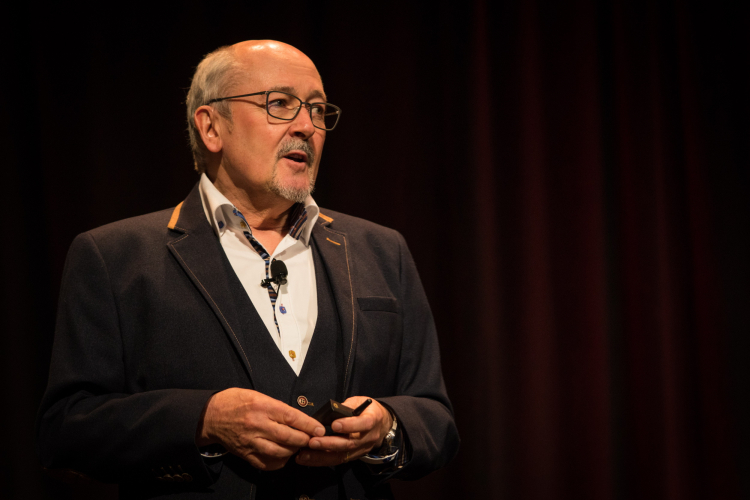“Run fast, fail often and fix it”, or allow bureaucracy to stifle innovation – ERM Forum speaker preview

Stephen Carver, a senior lecturer in change and crisis management at Cranfield University School of Management, will address the Airmic ERM Forum 2022 on 6 December.
‘Complexity isn’t complicated’ is the theme of Stephen Carver’s presentation, which will be delivered at the upcoming Enterprise Risk Management Forum, to be hosted by Airmic, on Tuesday 6 December.
Flying is used as an analogy for change management by Carver, who is a senior lecturer in change and crisis management at Cranfield University School of Management.
“In my role as a project manager, it’s quite like being the pilot, taking people from where they are to where they want to be. They aren’t looking for excitement, it’s about being functional,” he says.
Trainings and checklists – typical risk management tools – are vital, he emphasises, but these cannot always take into account a one-of-a-kind crisis situation. He uses the example of the so-called “Miracle on the Hudson”, when Chesley ‘Sully’ Sullenberger successfully conducted an emergency landing on water in the Hudson River.
“That situation was about good judgement more than procedures. Nobody could have foreseen a scenario in which you would lose both engines due to bird strikes, while carrying a full payload of fuel, flying above Manhattan,” says Carver.
Some crises involve what Carver calls “agile change management”, which requires moving faster than traditional risk management tools, such as using risk registers, can operate. As a crisis manager, Carver suggests the analogy for this situation is that of a fast-jet fighter pilot.
“To debunk some ideas about fighter pilots, in some ways, they are quite dull people at work, because the job is about knowing the rulebooks inside out, backwards and forwards, to push capabilities up to the envelope,” he says.
In contrast, he thinks there are too many barriers put in place – primarily through governance controls put in place by risk management – hampering the effectiveness of change managers and crisis managers.
“I think too many organisations clip the wings of change managers, hampered by governance and bureaucracy. This is leading to low levels of innovation, rather than unleashing potential,” he says.
The events of the global financial crisis of 2008 were a fulcrum, he suggests, leading to an era of over-caution.
“Airmic is an organisation full of risk managers, but for some of them, I think there is a danger that they reach the point where they think the safest way to fly is not to fly,” Carver warns.
This was the case at NASA, he warns, with accidents and bureaucracy leading to an organisation that became too heavy-footed and risk-averse, he suggests.
Whereas in that industry, a disruptor arrived on the scene in the form of Elon Musk’s Space X – bringing a more innovative culture that has since decimated the cost of sending rockets into space.
“His way of managing risk is to run fast, fail often and fix it. This ‘fast failure’ approach is anathema to traditional risk management, in which we are meant to stop, think, calculate and plan before we move,” says Carver.
“However, results show that Musk is frighteningly effective at what he does,” he adds.
